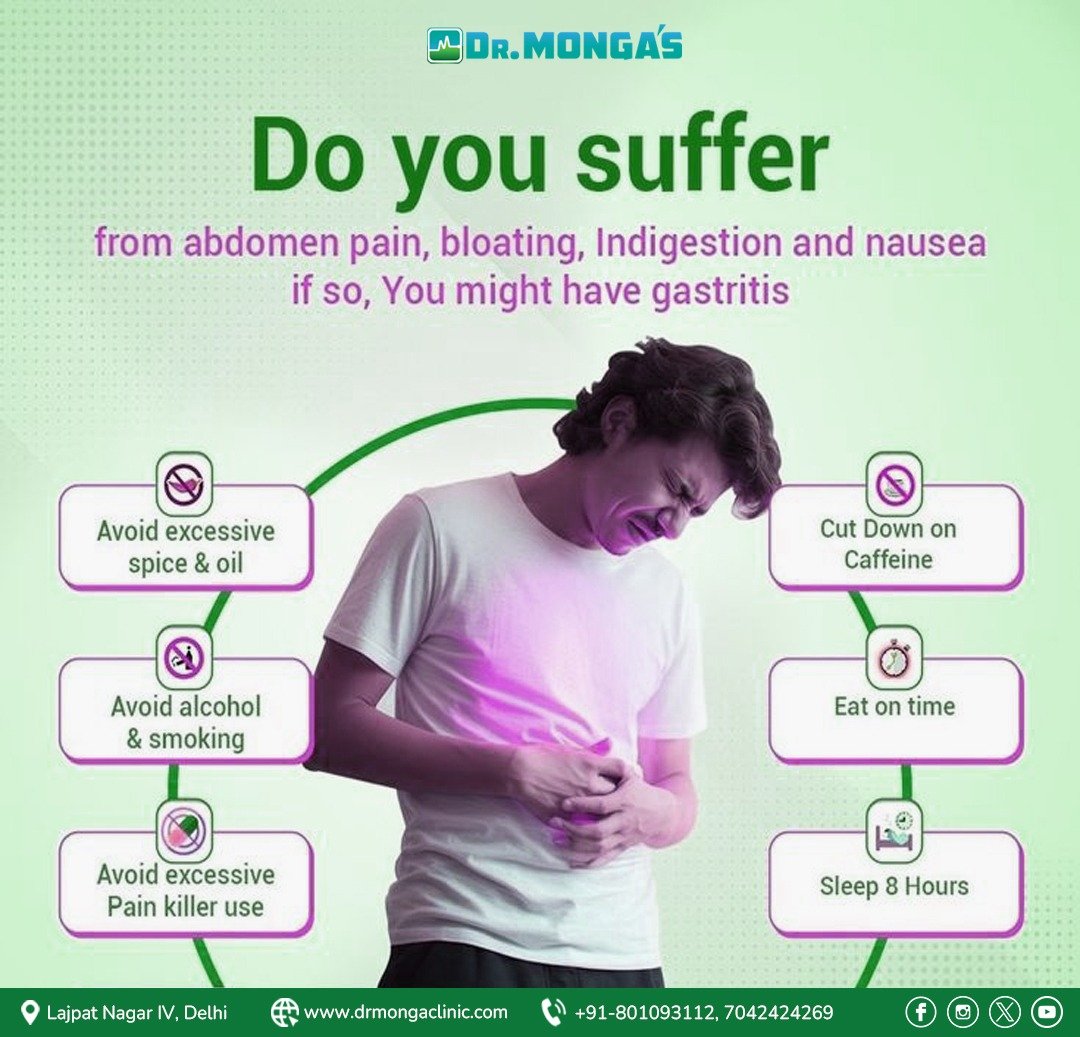🤔 क्या IBS या अल्सरेटिव कोलाइटिस जैसी पेट की गंभीर समस्या से परेशान हैं?
✅ अब पाएं राहत डॉ. मोंगा क्लिनिक के अनुभवी आयुर्वेदिक इलाज से।
⚡ आयुर्वेदिक उपचार से अपनी सेहत को फिर से पाएं।
💡 आज के समय में पेट की समस्याएं तेजी से बढ़ रही हैं।
❌ बार-बार अंग्रेजी दवाइयां खाने से हो सकता है स्वास्थ्य का और नुकसान।
Digestive problems are common nowadays, but some conditions, such as irritable bowel syndrome (IBS) and ulcerative colitis, can be serious and complicated.
It is important to manage these problems properly as they can seriously impact your lifestyle and health. In this blog, we will learn about understanding these diseases and ways to manage them.
What are IBS and Ulcerative Colitis?
Irritable Bowel Syndrome (IBS)
IBS is a functional gastrointestinal disorder that affects the digestive system. Its symptoms include abdominal pain, cramps, gas, constipation, or diarrhea. This problem is mainly caused by the digestive system’s sensitivity and an imbalance in intestinal movement.
Ulcerative Colitis
It is an inflammatory bowel disease (IBD) in which the lining of the large intestine and rectum becomes inflamed and ulcerated. Common symptoms are bloody diarrhea, abdominal pain, fatigue, and weight loss. It is a long-term problem that can be managed with the right care and treatment.
Common Causes of IBS and Ulcerative Colitis
- Stress and Anxiety: Mental health has a profound effect on the digestive system.
- Eating Habits: Spicy, fried, and a diet lacking in fiber can aggravate the problem.
- Genetic Causes: If someone in the family has this problem, the risk increases.
- Immune System Problems: Especially in ulcerative colitis, the immune system can attack the intestines.
How do we Recognize the Symptoms of These Problems?
Common Symptoms of IBS
- Diarrhea (often described as violent episodes of diarrhea)
- Constipation
- Alternating periods of constipation and diarrhea
- Abdominal pain or cramps, usually in the lower half of the abdomen, worsen after meals and get better after a bowel movement.
- A lot of gas or bloating
- Harder or looser stools than usual (circular or flat ribbon stools)
- Abdominal bloating
- Mucus in your stool
- Feeling like you still need to have a bowel movement
- Food intolerances
- Fatigue
- Anxiety
- Depression
- Heartburn and indigestion
- Headache
- Frequent urge to urinate
Common Symptoms of Ulcerative Colitis
- Bloody diarrhea
- Abdominal cramps and pain
- Fever and fatigue
- Sudden weight loss
Solutions to These Problems
1- Eat Right
- For IBS: Include fiber-rich foods such as fruits, vegetables, and whole grains. Avoid spicy and oily foods.
- For Ulcerative Colitis: Light, easily digestible foods such as yogurt, bananas, and oatmeal are useful.
2- Maintain Hydration
Regular intake of water and fluids improves digestion and reduces intestinal inflammation.
3- Reduce Stress
Stress can worsen IBS and ulcerative colitis. Practices such as meditation, yoga, and pranayama can help reduce stress.
4- Exercise Regularly
Light exercises such as walking and yoga improve intestinal health.
5- Use Probiotics
Probiotics, such as yogurt and fermented foods, promote good bacteria in the intestines.
6- Ayurvedic Treatments
- Triphala Powder: It improves digestion and cleanses the intestines.
- Ashwagandha: Keeps the digestive system healthy by reducing stress.
- Consumption of Licorice: It reduces inflammation and ulcers.
When to Contact a Doctor?
If the following symptoms appear, consult a doctor immediately:
- Persistent bloody diarrhea
- Sudden weight loss
- Abdominal pain that does not respond to medication
- Fever or extreme fatigue
Lifestyle Changes
- Eat on Time: Irregular meals affect the digestive system.
- Avoid Addiction: Smoking and alcohol can aggravate intestinal problems.
- Get Enough Sleep: Good sleep helps keep the digestive system healthy.
- Keep Track of Your Symptoms: Note down your diet and symptoms in a diary to understand triggers.
Conclusion
Problems like IBS and ulcerative colitis can be lifestyle issues but can be controlled with proper diet, exercise, and stress management. If the symptoms are severe, consult a doctor and try Ayurvedic and natural remedies for a long-term solution.











Leave a Reply